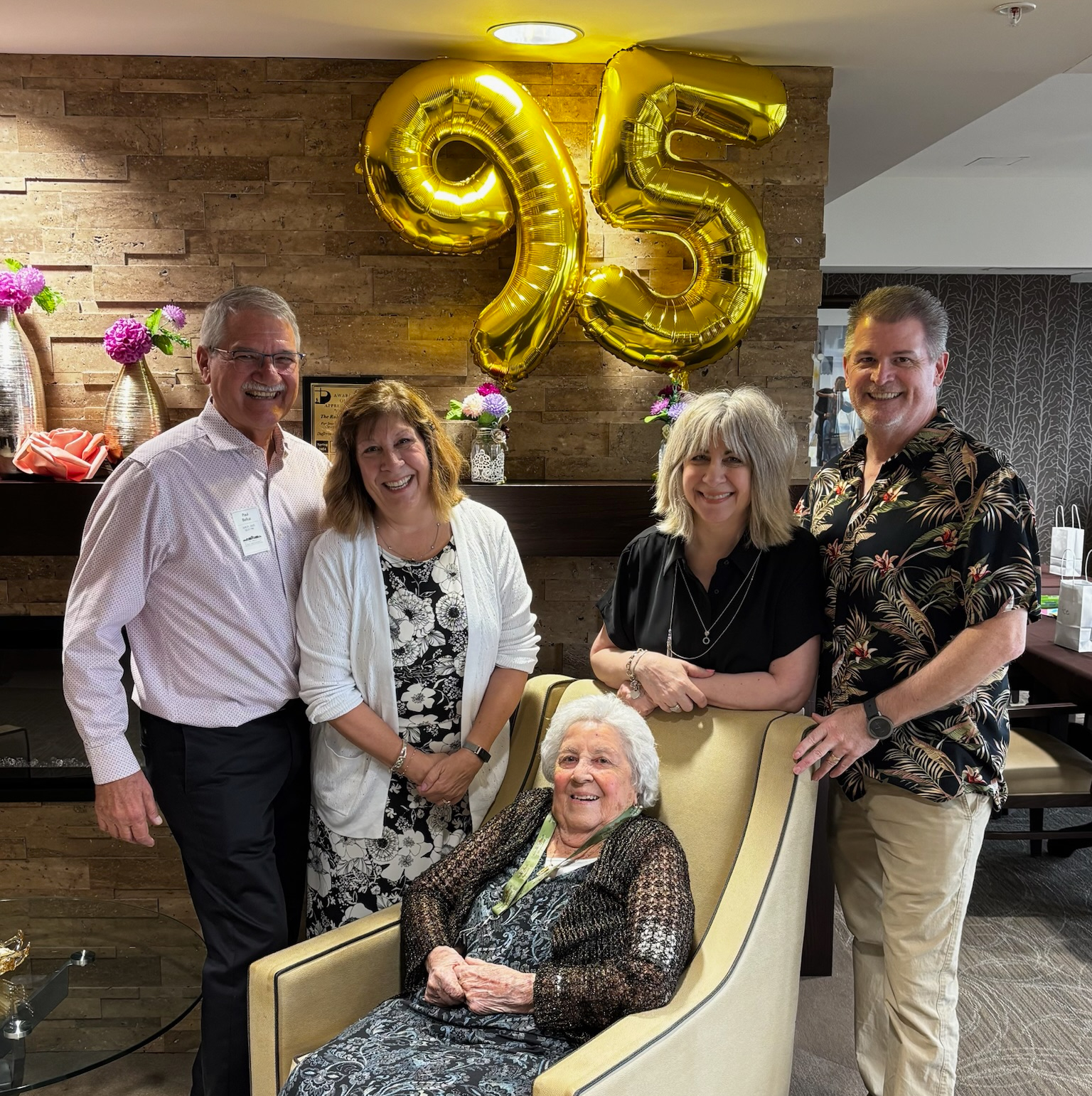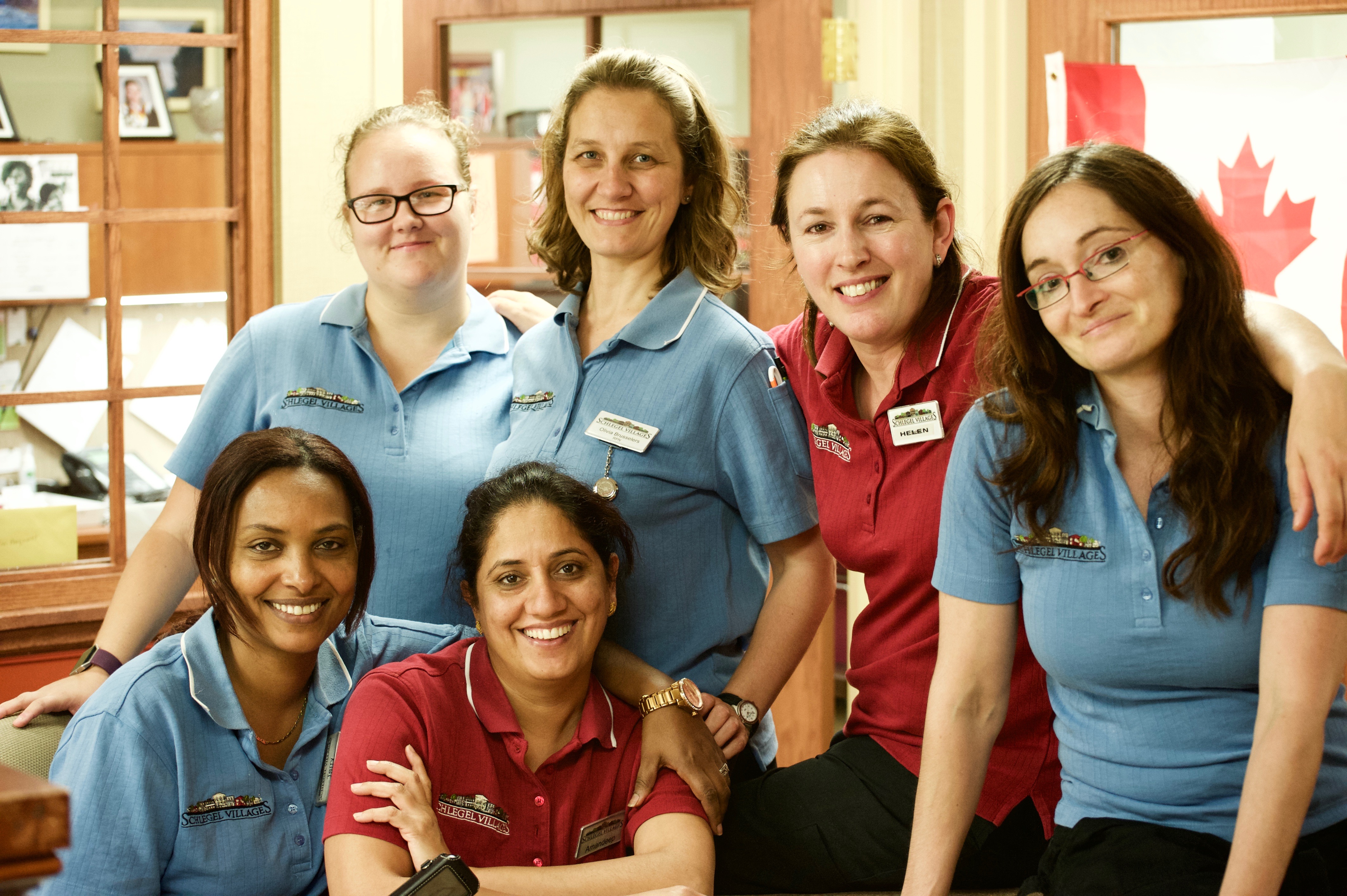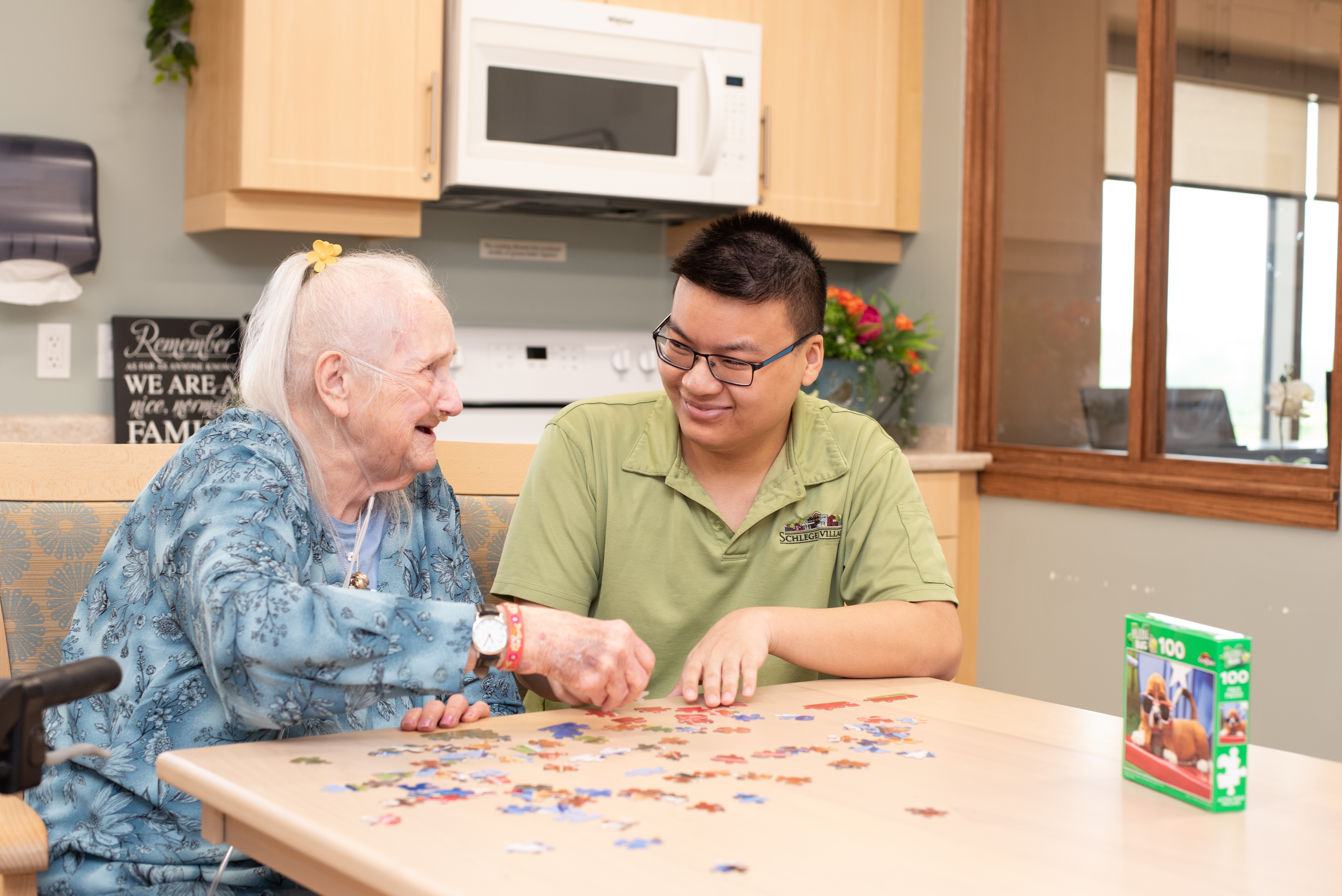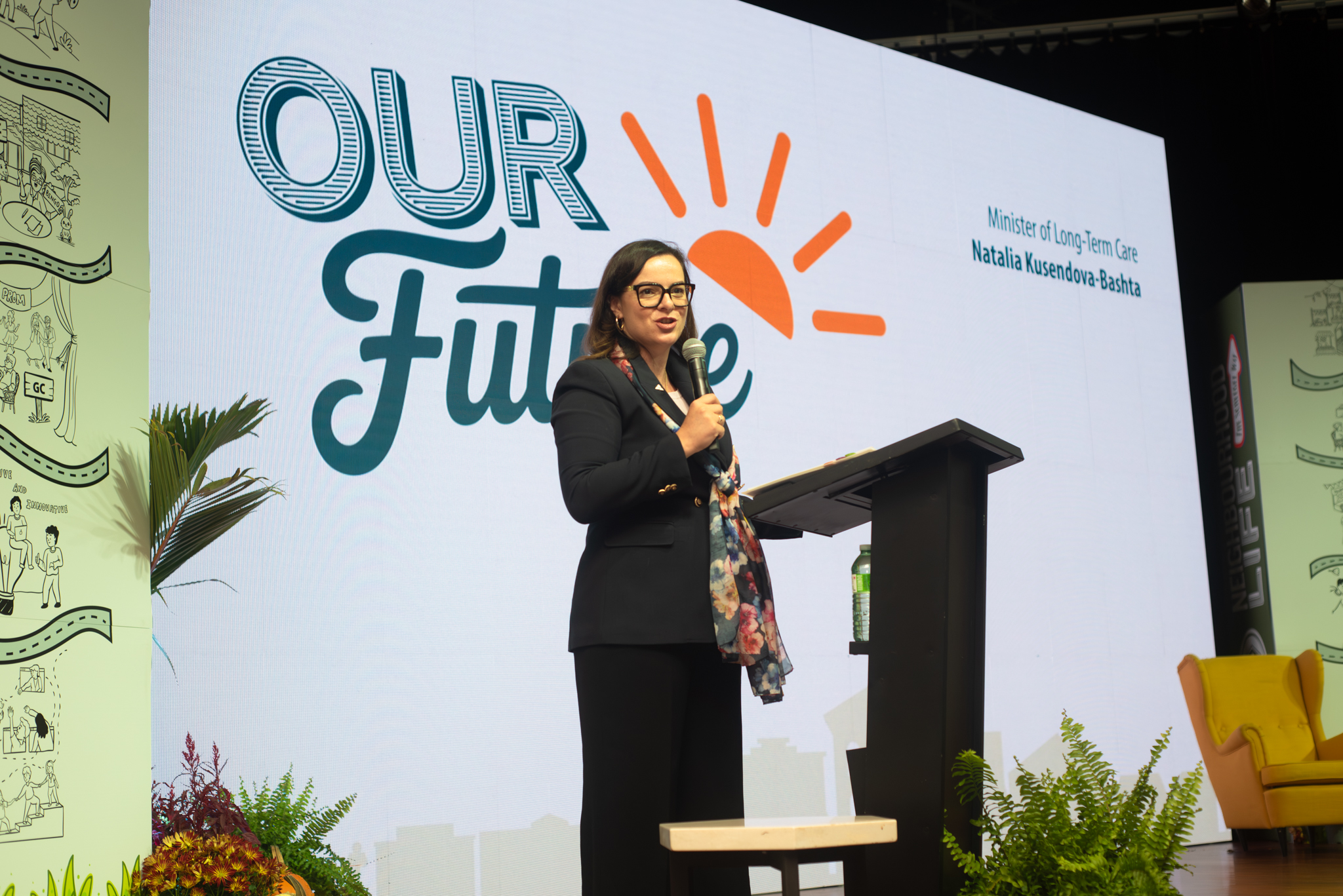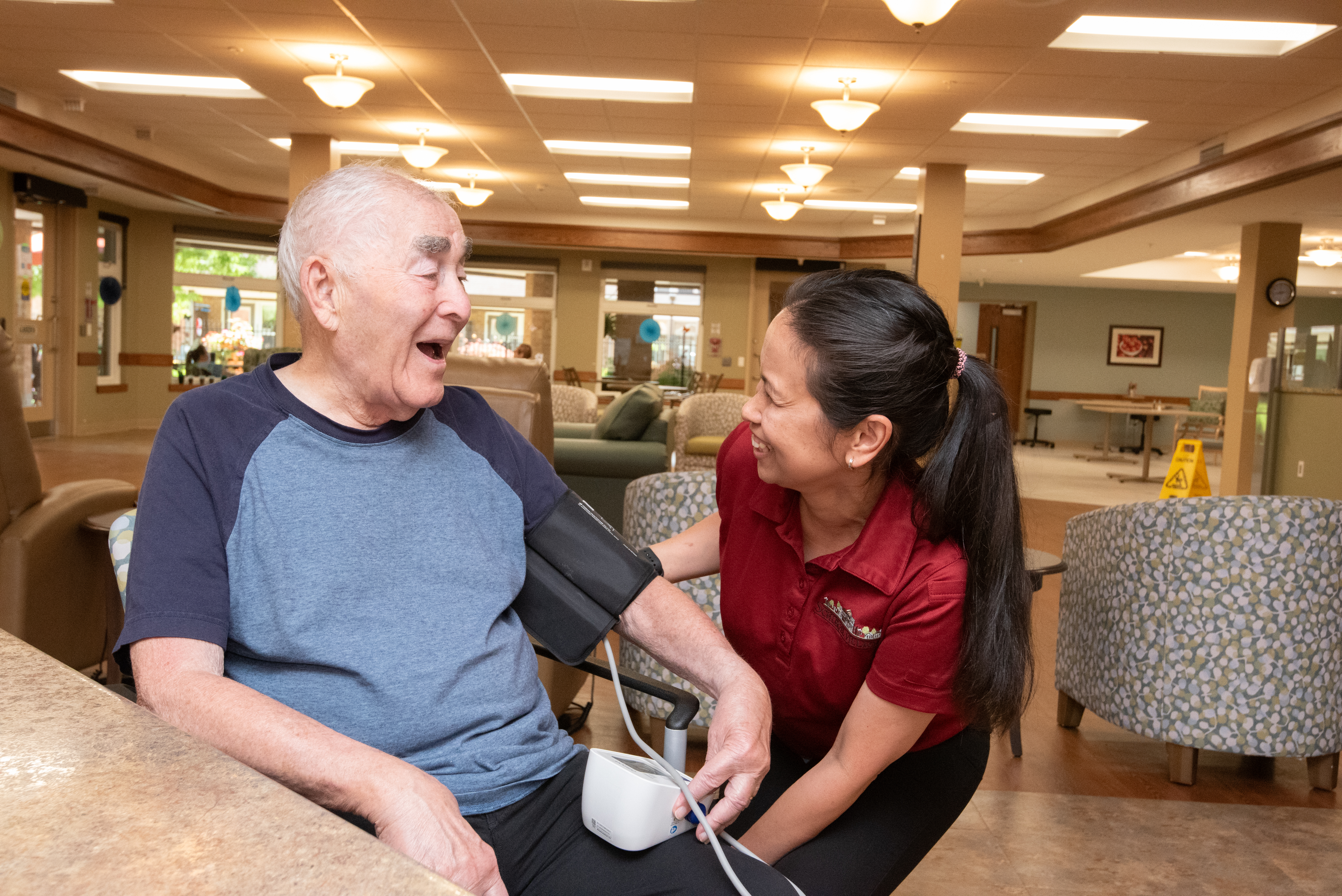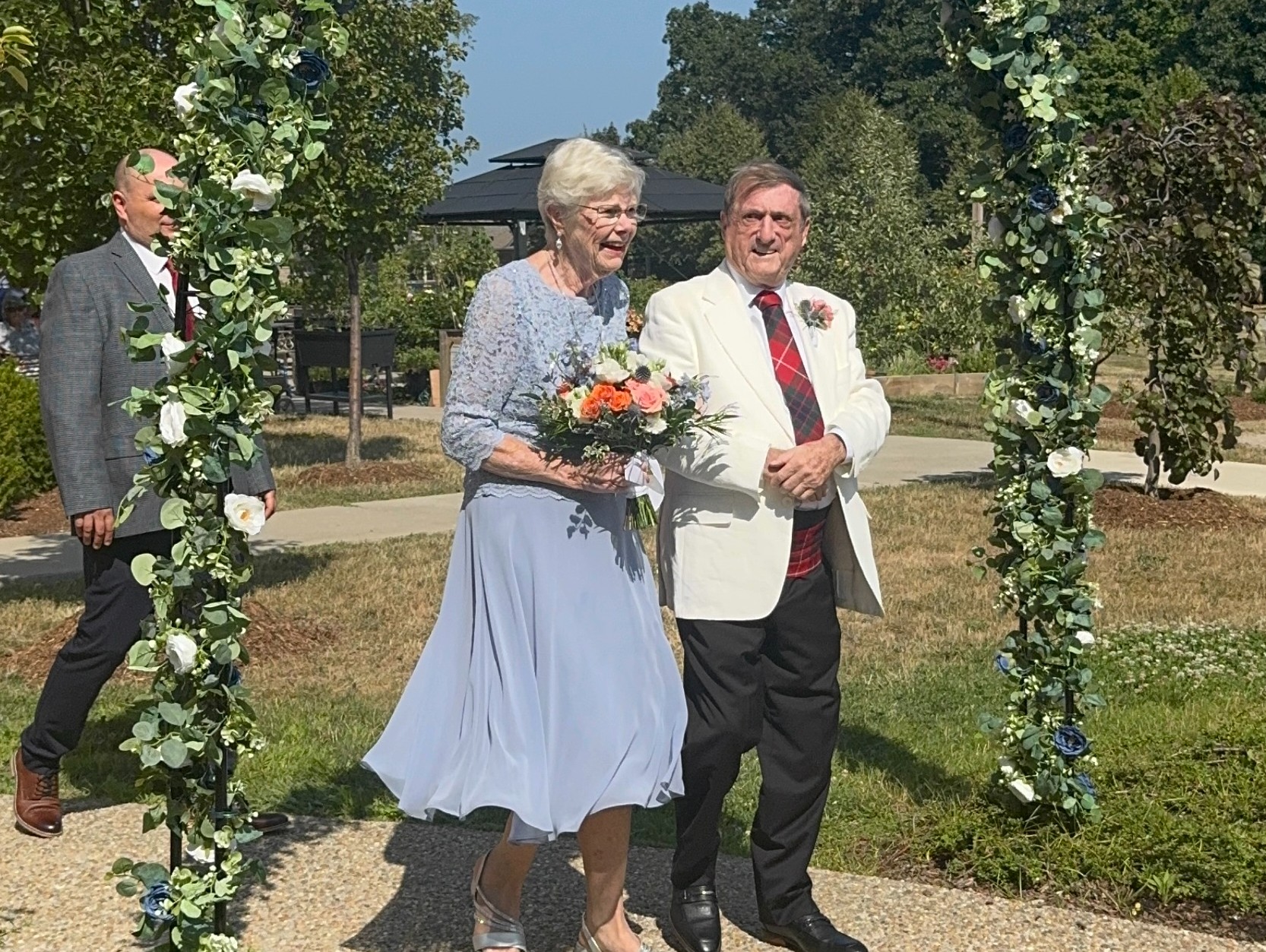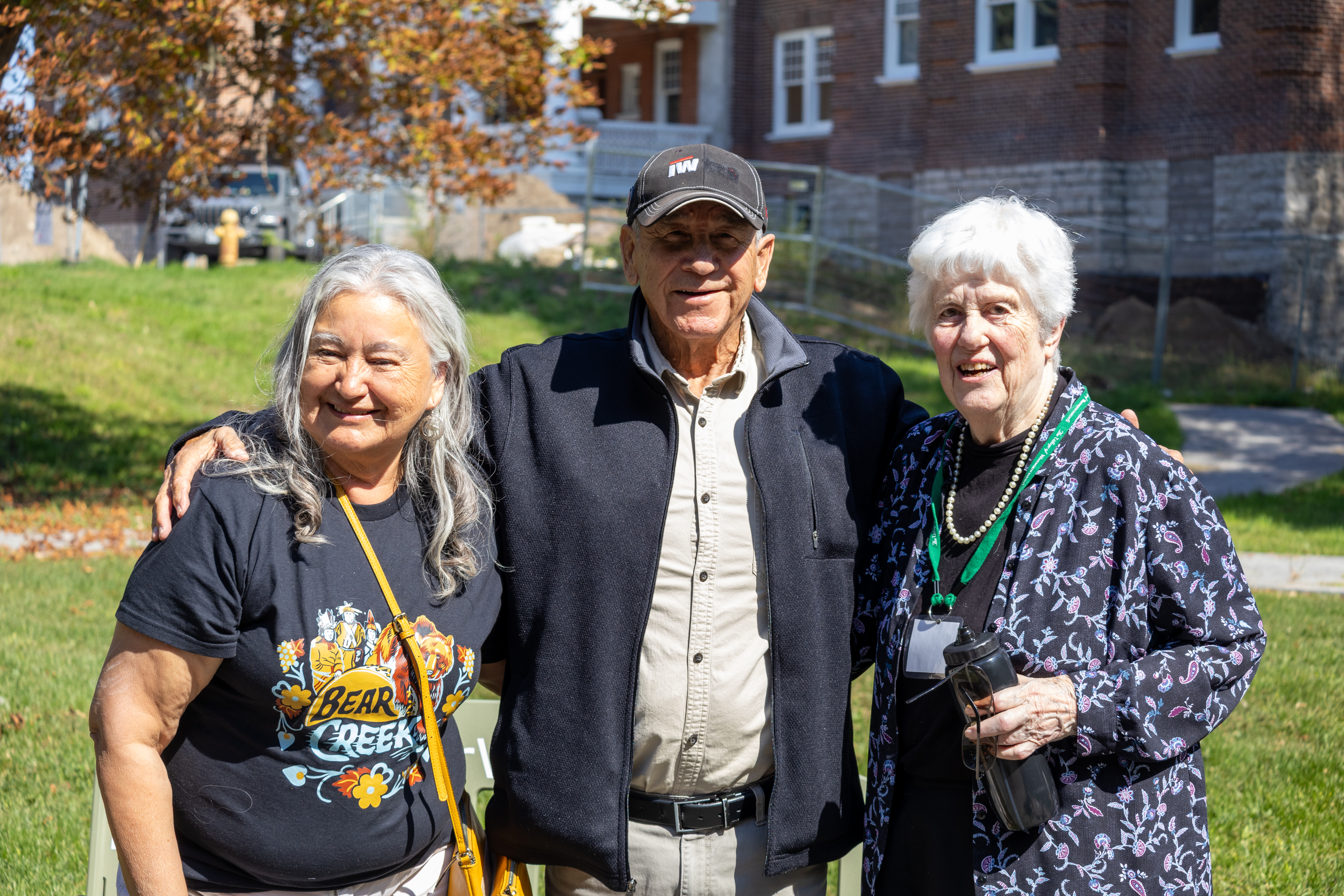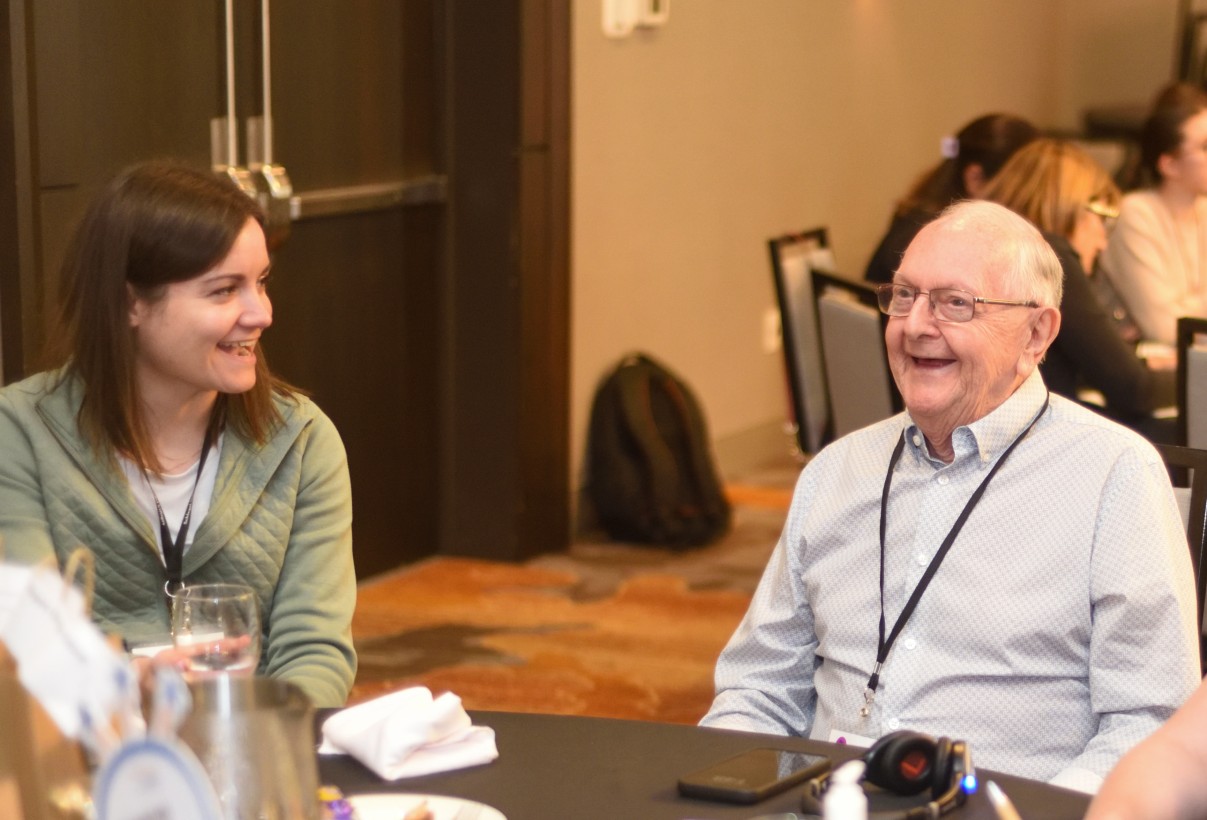When the powder keg of racial inequality in the United States erupted in late May following the horrific death of George Floyd in Minneapolis, the scope of the issue quickly spread across borders. The protests and the political reactions across America quickly flared in the psyche of Canadians, and the Black Lives Matter movement was rightly front-of-mind in cities and towns across the country.

Vera was gracious enough to share her
wisdom and perspective on the important issue
of racial equality. Click here to see her video.
A conversation about inclusion, diversity and racial justice that seemed to have lain dormant began again, and team members and residents within Schlegel Villages are eager to see it continue.
Virginia Ferdinand is just one of many. The personal support worker who has been part of The Village of Winston Park for nearly 20 years safely took part in the Black Lives Matter march of solidarity in Kitchener in early June. It was an important day for the black community there and its many allies, but Virginia says more needs to be done at the local level to keep the conversation moving.
“More people seem to care right now,” she says. “More people are thinking of other people and seeing the injustices that are being done and people are speaking out. That walk I went to; there were lots of people showing support. People are still scared to talk, but people are trying.”
Virginia is helping organize National Racial Justice Day of Action events in her Village on July 31, which she hopes will again highlight some of the many challenges people of colour still face in their daily lives – not only in the United States but close to home as well.
Another who spoke out as the protests grew in the U.S. is Vera Tavernier, a mother, teacher, community volunteer and now a resident at The Village of Wentworth Heights in Hamilton. She moved to the United States from Trinidad at the age of 21 to study in Massachusetts and four years later, came to Canada.
She’s seen progress in racial equality ebb and flow throughout the decades, and she asks: “When will it end?”
“It has been going on too long,” Vera says. “Generations of black people have been suffering. Not all white people are bad – there are good white people and there are bad white people – but we would like to suffer less at the hands of those who hate.”
She believes if people could focus a little more on spirituality, then people of all races would perhaps find it easier to come together as a community.
Like Vera, Adaobi Michaels, the director of nursing care at The Village of Glendale Crossing, lived in the United States, and says she knows many people who have experienced racial discrimination firsthand.
Team members from different backgrounds need to feel that not only is cultural diversity a central value in the Schlegel Villages organization, Adaobi says, but the Villages live it and are in tune with what is currently happening in the world.
“We had this time when something different was happening last month (early June),” she says, “something we’ve never seen, and I think that aside from the ongoing conversation we will continue to have regarding inclusion and diversity, I felt like we could have taken a moment to capture what was really happening . . . and acknowledge that yes, this is something we’ve always practiced and always preached, but we want to acknowledge this particular event happening.”
The challenges remain, but conversations between team members, families and residents, as well as the ongoing quest to strengthen relationships, can help each Village contribute to progress in the wider community.
Virginia, for example, shares a story about how relationships can help surpass barriers.
She recalls a particular resident who “was very set in her ways,” Virginia says. This resident took exception to the colour of Virginia’s skin, but in spite of that, Virginia says, “you must still go to them, you still do their care and tell them you love them and you care.”
It soon came to the point that this resident would become upset if Virginia didn’t do her personal care.
“We grew that relationship,” Virginia says. “She wanted to report me every day, but we ended up growing that relationship where I loved her and she ended up loving me too, just because I would not give up.”
There’s no sign that anyone is giving up in the current state of the world; the hope among all is that Schlegel Villages, as an extension of the wider community each serves, can be an example for all to follow.
Click here to see a message from Schlegel Villages President and CEO, Jamie Schlegel.
- Previous
- View All News
- Next
